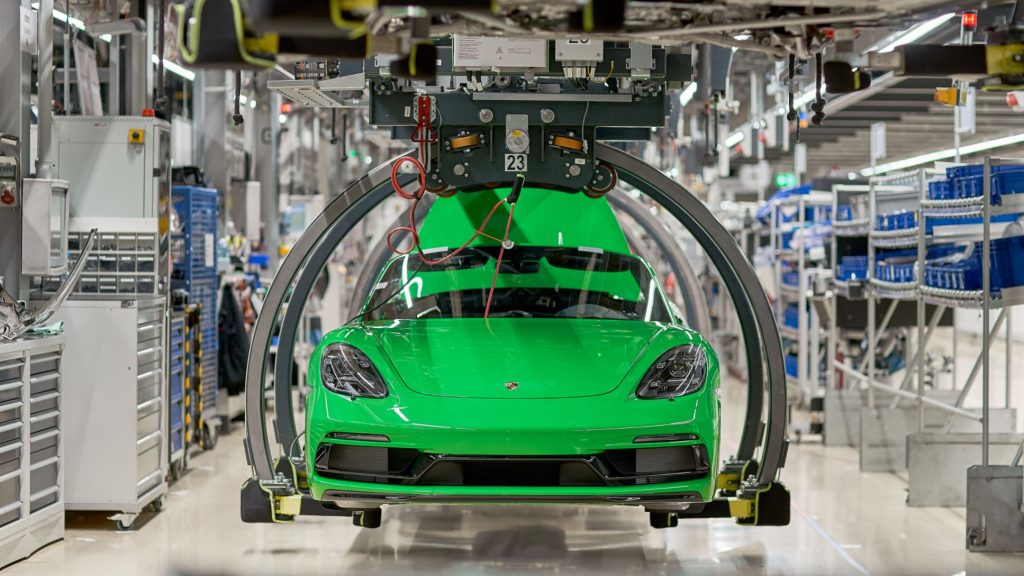The EU Must Take a Stand Against U.S. Tariffs: Why Retaliation Is the Only Option Left.
The trade tension between the European Union (EU) and the United States has reached a breaking point, and it’s becoming clear that the EU can no longer afford to sit on the sidelines. With the U.S. planning to impose a hefty 25% tariff on car imports from Europe, the time for action is now. For years, the EU has tried diplomacy, but the reality is that the U.S. has shown no signs of backing down. The EU needs to stop reacting and take control of its future in trade.
Why the EU Needs to Stop Being Passive
The relationship between the U.S. and the EU has always been a balancing act. Both are major trade partners, but for the past few years, the U.S. has repeatedly used tariffs to further its interests. Meanwhile, the EU has tried to avoid conflict, hoping that the U.S. would eventually come to its senses. But it’s become clear that this approach isn’t working.
The U.S. has pushed the EU too far. It’s time to face facts: diplomacy, while valuable, isn’t enough when dealing with a country that uses tariffs as a tool of negotiation. If the EU doesn’t start standing up for its industries and interests, it risks being walked all over in future trade deals. The EU can no longer wait for things to improve—it's time to take action.
Why Retaliation Is the Only Way to Make an Impact
The EU has now reached a point where retaliation might be the only way to force the U.S. to reconsider its protectionist approach. The 25% tariff on cars is just the latest in a series of punitive measures from the U.S., and the EU can no longer remain passive. Retaliating by targeting key U.S. exports—such as whiskey, motorcycles, and agricultural machinery—would send a message that the EU isn’t going to accept these trade barriers without consequences.
Some might worry that retaliatory tariffs could escalate tensions further, but in this situation, there’s little choice. The U.S. is not interested in finding common ground—it’s focused on flexing its economic muscle. If the EU wants to protect its industries, it will have to push back. Retaliation isn’t just an option—it’s becoming necessary.
Offering Concessions: A Risky Path to Take
On the flip side, there’s always the temptation to try and offer concessions to the U.S. in hopes of easing the situation. This could mean making adjustments to the EU’s digital tax policies or offering more access to European agricultural markets. While these moves could help smooth things over in the short term, there’s a serious risk involved.
The EU needs to be careful not to undermine its own economic position. Offering too many concessions could set a dangerous precedent, one where the U.S. feels entitled to impose tariffs at will, knowing the EU will always back down. The EU needs to ensure it’s not just giving in for the sake of avoiding conflict. There’s a fine line between compromise and capitulation, and the EU should avoid crossing it.
The Economic Impact: Why Waiting Is No Longer an Option
The stakes here are incredibly high. If the U.S. follows through with its plan to slap tariffs on European-made cars, the economic fallout could be significant. The European Commission has already warned that these tariffs could lower GDP growth by as much as 1%. The automotive sector would be hit particularly hard, with exports to the U.S. potentially plummeting.
But let’s not forget—the U.S. isn’t immune to the fallout of its own actions. If the EU retaliates with tariffs, U.S. companies could see a dip in sales in the European market. The EU represents a major market for American goods, and tariffs could hurt U.S. industries that rely on exports to Europe. In the end, both sides stand to lose, which is why the EU must take action sooner rather than later.
Diplomacy: Still Worth Pursuing, But With Limits
While retaliation is a necessary option, the EU should still try to engage in diplomacy where possible. No one wants an all-out trade war, and both the EU and U.S. have a lot to lose if tensions completely boil over. But diplomacy shouldn’t mean giving in to every U.S. demand. It’s essential that the EU continues to stand firm on fair trade practices, ensuring that any deals reached are based on mutual respect and fairness.
The U.S. has made its position clear: it wants to use tariffs as a tool to reshape trade terms. But the EU should make it clear that tariffs cannot be used as a bargaining chip indefinitely. If the U.S. wants a fair relationship, it needs to be willing to negotiate in good faith. For now, the EU should keep the door to diplomacy open—but only on its own terms.
The EU’s Moment to Lead
This is a turning point for the EU. It can either continue to play it safe, hoping the U.S. will eventually change its mind, or it can take a more aggressive stance and make it clear that it will protect its interests. The EU has been on the backfoot for too long, trying to avoid confrontation. It’s time to stop being reactive and start taking control of the narrative.
Retaliation may seem harsh, but it’s likely the only language the U.S. understands at this point. However, the EU should also be looking beyond just tariffs. It needs to reinforce its commitment to fair trade practices, show leadership on the world stage, and ensure that future negotiations are about mutual respect, not unilateral demands.
The EU Must Act Now
In the end, the EU faces a critical juncture. It can no longer afford to sit on the sidelines, hoping for the best while the U.S. continues to impose tariffs and trade barriers. The diplomatic route has been explored, but the reality is clear—the U.S. is pushing for more, and the EU has been too passive for too long. At this point, the EU needs to stop reacting and start taking a stand. Retaliation may feel like an uncomfortable step, but it might be the only way to push back and force the U.S. to reconsider its approach.
The EU has always prided itself on its commitment to fair and open trade. But the world is changing, and the EU must evolve with it. If it continues to bend to U.S. pressure, it risks losing both its economic power and its global influence. This is the moment when the EU must show that it’s willing to protect its industries, its workers, and its future. It’s time for the EU to make its voice heard and demand respect in the global trade arena. Anything less will only invite more exploitation. The EU’s next steps will define its role in the world for years to come, and it’s high time it steps up to the plate.
People Also Ask (FAQ)
1. Why is it important for the EU to retaliate against U.S. tariffs?
Retaliation is necessary to protect EU industries from unfair trade practices. By imposing tariffs on key U.S. exports, the EU would show that it’s serious about standing up for its economic interests and level the playing field with the U.S.
2. What are the risks of offering too many concessions to the U.S.?
Offering too many concessions could weaken the EU’s position in future trade negotiations. It could also set a dangerous precedent where the U.S. continues to impose tariffs and expects the EU to simply give in.
3. How would retaliatory tariffs impact U.S.-EU relations?
While retaliatory tariffs would likely escalate tensions, they would also send a strong message to the U.S. that the EU is not willing to tolerate unfair trade practices. This could lead to more balanced negotiations in the future.
4. What economic impact could U.S. tariffs have on the EU?
U.S. tariffs could lower the EU’s GDP growth by as much as 1%, with the automotive sector particularly affected. This would lead to higher production costs and reduced exports to the U.S., hurting European economies.
5. How should the EU approach future trade negotiations with the U.S.?
The EU should continue to engage diplomatically but avoid giving in to every U.S. demand. It must maintain a strong stance on fair trade and ensure that future agreements are based on mutual respect and equality.





















